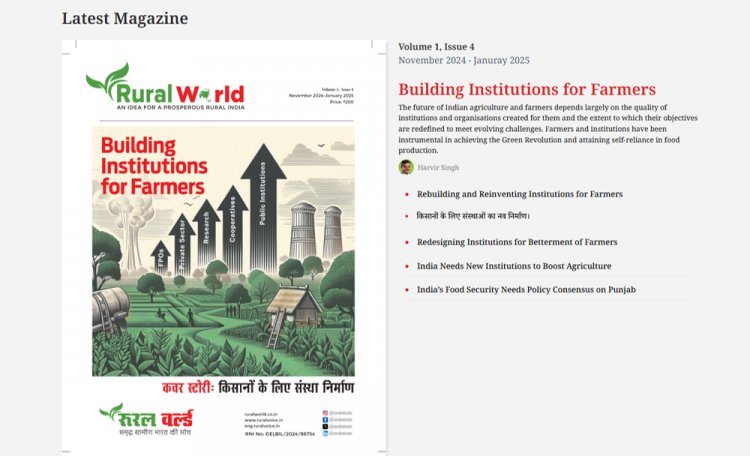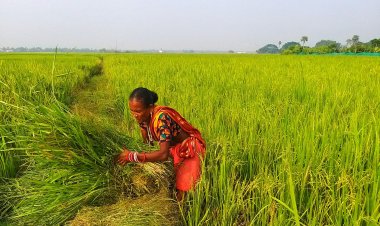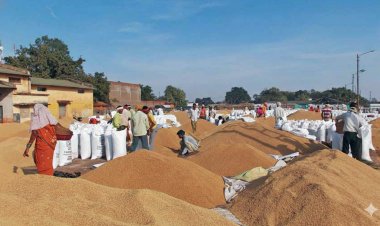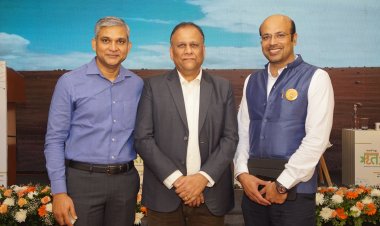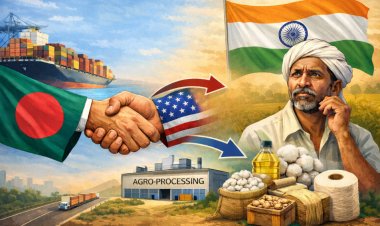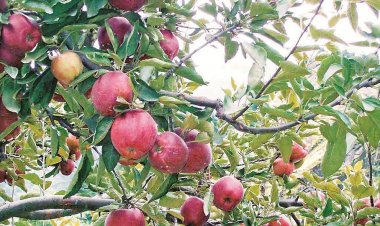Rebuilding and Reinventing Institutions for Farmers
Recognizing the significance of institution building for farmers, the latest issue of the Rural World magazine is dedicated to this critical topic. Through in-depth articles, we bring readers insights from experts and officials with extensive experience in establishing and leading such institutions.
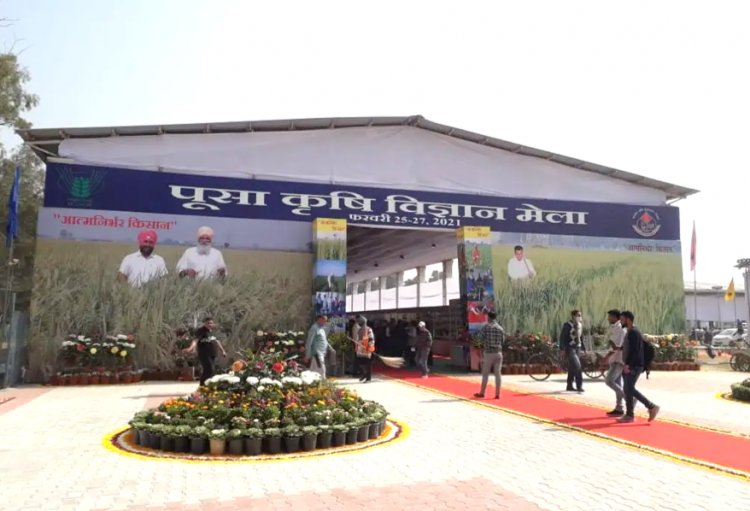
The future of Indian agriculture and farmers depends largely on the quality of institutions and organisations created for them and the extent to which their objectives are redefined to meet evolving challenges. Farmers and institutions have been instrumental in achieving the Green Revolution and attaining self-reliance in food production.
The ICAR, along with state and central agricultural universities and research centres, has played a key role in delivering high-yielding crop varieties to farmers. This success was not just about developing crop varieties; it also required setting up fertiliser production plants critical for higher yields. To ensure fair prices for farmers, the Commission for Agricultural Costs and Prices introduced the MSP system.
The FCI was established to facilitate procurement and payments to farmers, while the central and state warehousing corporations and the PDS ensured the storage and distribution of food grains. In addition to these government efforts, cooperative societies have also played a pivotal role.
The private sector entered the picture in the late 1980s and early 1990s. They brought in hybrids in vegetables, corn and cotton (including Bt technology), tissue culture in bananas, high-yielding broiler chicken and layer poultry breeds, and new agronomic technologies like drip irrigation and laser levelling.
Today, the central focus has shifted to improving farmers’ incomes. The hope that economic liberalisation in 1991 would uplift farmers by transitioning them into the manufacturing and services sectors has dimmed, as recent data reveal. In this context, policies now focus on the economic self-reliance of agriculture and farmers.
It is evident that policies aimed solely at providing individual economic benefits to farmers may not suffice. An institutional framework is essential—one where farmers either own or have a shared business interest with private sector entities. Existing institutions also require a thorough review. Organisations such as ICAR and institutions within the National Agricultural Research System (NARS) need to redefine their goals and responsibilities, while entities like FCI must reassess their roles. State-level institutions for agriculture and farmers also need reorganisation to remain effective and relevant.
Farmer organisations are a critical part of this institutional framework. Among various forms, cooperatives remain the most organised, influential, and far-reaching. The establishment of the Ministry of Cooperation has paved the way for reforms, introducing changes to make the structure—spanning Primary Agricultural Credit Societies (PACS), district unions, state federations, and multi-state cooperative societies—more efficient, accountable, and transparent.
Cooperatives work on the principle of shared economic growth, where members benefit collectively. However, significant challenges remain, including government and political interference, transparency issues, democratic management, and the need for professional leadership.
The Farmer Producer Organisations (FPOs) and Farmer Producer Companies (FPCs), introduced a decade ago as an alternative to cooperatives, also deserve evaluation. While many FPOs have demonstrated strong economic performance, others have struggled. A single model cannot succeed universally, underscoring the need for localised approaches.
The government has established three national-level cooperatives that aim to ensure better pricing and create markets for farmers’ produce.
The critical importance of building institutions for farmers is the central focus of this edition of Rural World. Expert insights from individuals with extensive experience in establishing and leading such organisations are shared to provide readers with a deeper understanding of this issue.
On the occasion of Rural Voice entering its fifth year on December 23, the theme for the Rural Voice Agriculture Conclave and Awards 2024 has been set as “Building Institutions for Farmers.” Esteemed experts and officials from agriculture, rural economy, and cooperative sectors will deliberate on this vital topic.
As always, this edition of Rural World reinforces our commitment to promoting farmers’ prosperity and strengthening the agricultural economy.



 Join the RuralVoice whatsapp group
Join the RuralVoice whatsapp group